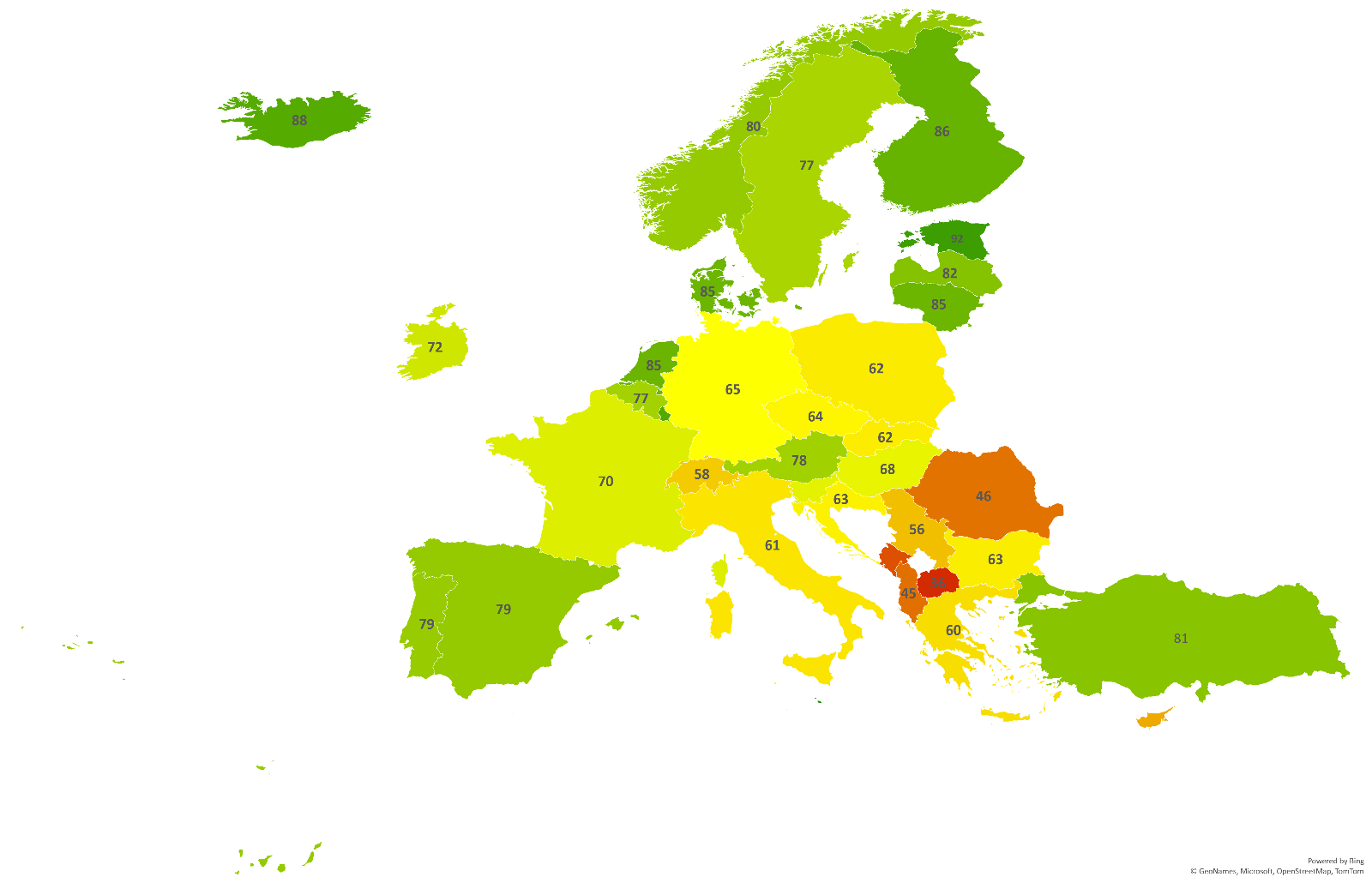eGovernment Benchmark 2023
On 27 September 2023, the European Commission published the eGovernment Benchmark 2023 report. The report examines the availability and the state of development of eGovernment services in line with the EU's strategic objectives, and compares how administrations across Europe deliver digital public services. How does Switzerland compare?
Switzerland's eGovernment in a European comparison
Switzerland has improved in all indicators, especially in terms of transparency, for example when it comes to online notifications when a stage in a procedure has been successfully completed. Switzerland has reached or surpassed the European average in the indicators relating to user centricity and cross-border mobility for the population. It has made particular improvements in the diversity of services: 78% of all government services can currently be used online, versus 63% in 2022. It is worth noting that 97% (EU: 93%) of all government websites are adapted for mobile devices, and 84% (EU: 91%) offer feedback functions and online support. Although Swiss administrations are steadily expanding their services, Switzerland ranks 29th out of 35 in the report's overall evaluation (total score 58), far behind leading countries such as Malta (96) and Estonia (92), and also below the European average (70). Neighbouring Austria (14th) and Germany (20th) are ranked higher than Switzerland.
In Switzerland, only a quarter of all online services surveyed in the report that require identification can be processed with an electronic identity (e-ID) (EU: 70%). The picture is similar for pre-filled forms: about the same number of online services offer pre-filled personal information (EU: 68%). Enabling national e-ID authentication and subsequent pre-filling of personal information would significantly improve digital public services in Switzerland.
This year, European countries such as Turkey or Greece have made a big leap forward. The key factors behind their improvements are a major expansion of public authority portals with a wide range of services and the integration of an e-ID, as well as digital mailbox solutions. In addition, users are informed about the extent to which personal data is accessed.
The comparison is based on the four dimensions "user centricity", "transparency", "cross-border mobility" and "basic services" in the area of digital public services. These consist of 14 underlying categories (e.g. online availability, personal data or e-ID) and are subdivided into 48 survey questions. "Mystery shoppers" from the participating countries assessed eGovernment services based on nine life events and visited around 15,000 websites to do so. The questions focus on individual key life events, such as reporting unemployment, registering for university, the birth of a child or founding a company. In addition to Switzerland, the study covers all 27 EU member states as well as Iceland, Norway, Albania, Montenegro, Northern Macedonia, Serbia and Turkey.
Overview of the results 2023

Published by: European Commission
